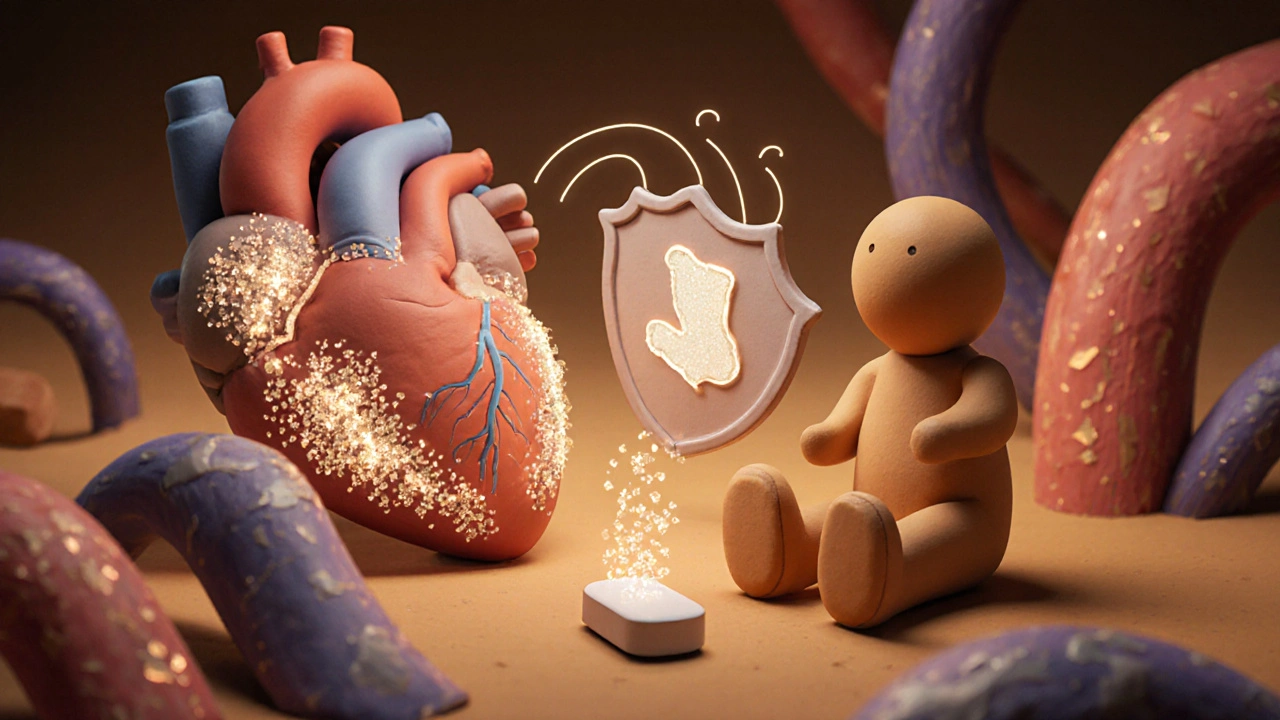Hyperphosphatemia: Causes, Risks, and How It Affects Your Health
When your blood has too much phosphate, a mineral that helps build bones and store energy. Also known as high phosphate levels, it’s not just a lab number—it’s a sign something deeper is off, especially if you have kidney disease, a condition where kidneys can’t filter waste properly.
Hyperphosphatemia, the medical term for elevated phosphate in the blood often shows up when kidneys are damaged. But it can also come from too much phosphate in your diet, certain medications, or even from broken-down muscle tissue after injury. Left untreated, it pulls calcium out of your bones and deposits it in your blood vessels, heart, and lungs. That’s why people with chronic kidney disease are monitored closely—high phosphate doesn’t just hurt your bones, it raises your risk of heart attack and stroke.
Managing it isn’t about cutting out all phosphate—that’s impossible. It’s about balance. Phosphate binders, medications taken with meals to block phosphate absorption are common. But diet matters too. Processed foods, sodas, and fast food are loaded with hidden phosphate additives. Even if your kidneys are fine, eating this way can push levels up. And if you’re on dialysis, missing sessions makes it worse. It’s not just about pills—it’s about daily choices.
You won’t always feel symptoms until it’s advanced. Fatigue, itchy skin, joint pain, and muscle cramps can all be signs. But the real danger is silent: calcium-phosphate crystals building up where they shouldn’t. That’s why regular blood tests are non-negotiable if you’re at risk. The goal isn’t to get phosphate down to zero—it’s to keep it in a safe range so your heart and bones stay protected.
What you’ll find in the posts below isn’t a textbook. It’s real-world advice from people who’ve lived with this, doctors who treat it, and studies that show what actually works. You’ll see how phosphate binders compare, what foods to avoid without giving up everything, and how kidney disease ties into other conditions like heart problems and bone loss. No fluff. Just what you need to understand, manage, and talk to your doctor about.
Sevelamer hydrochloride helps kidney patients reduce dangerous phosphate levels, lowering the risk of heart disease by preventing artery calcification and improving cardiovascular outcomes.
Oct, 28 2025

